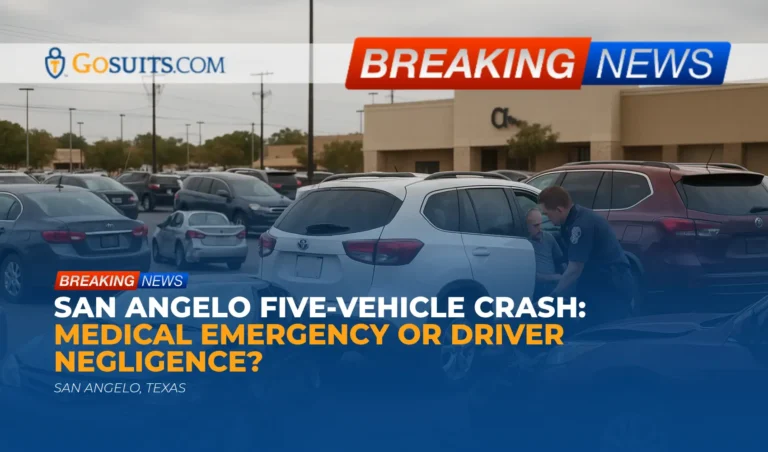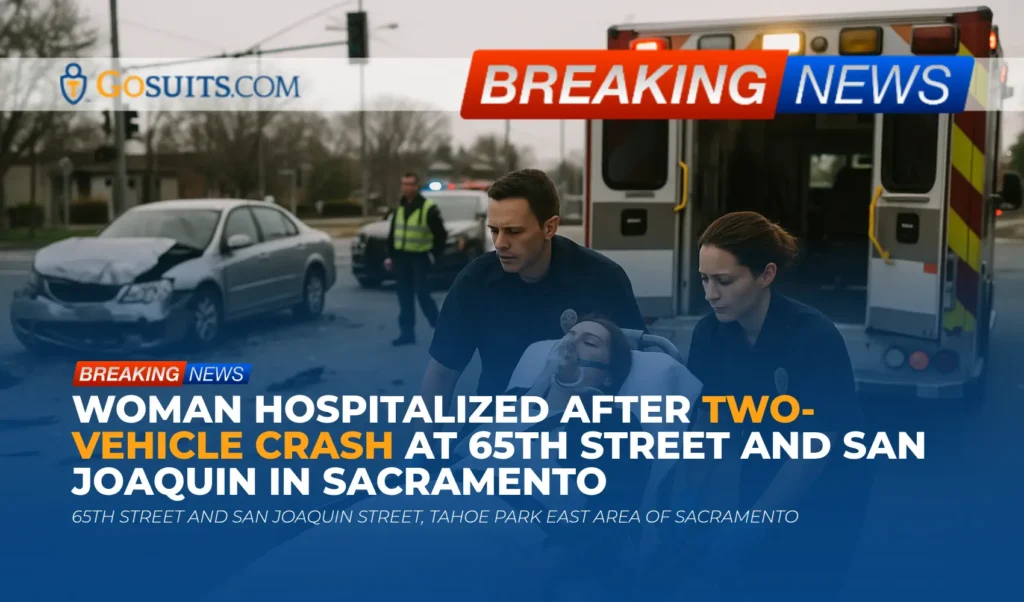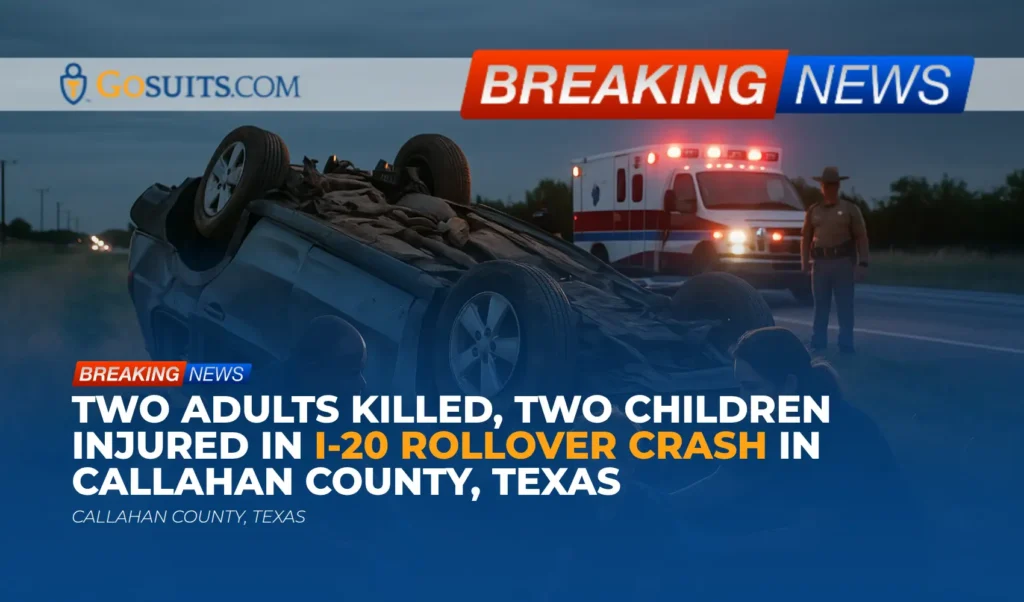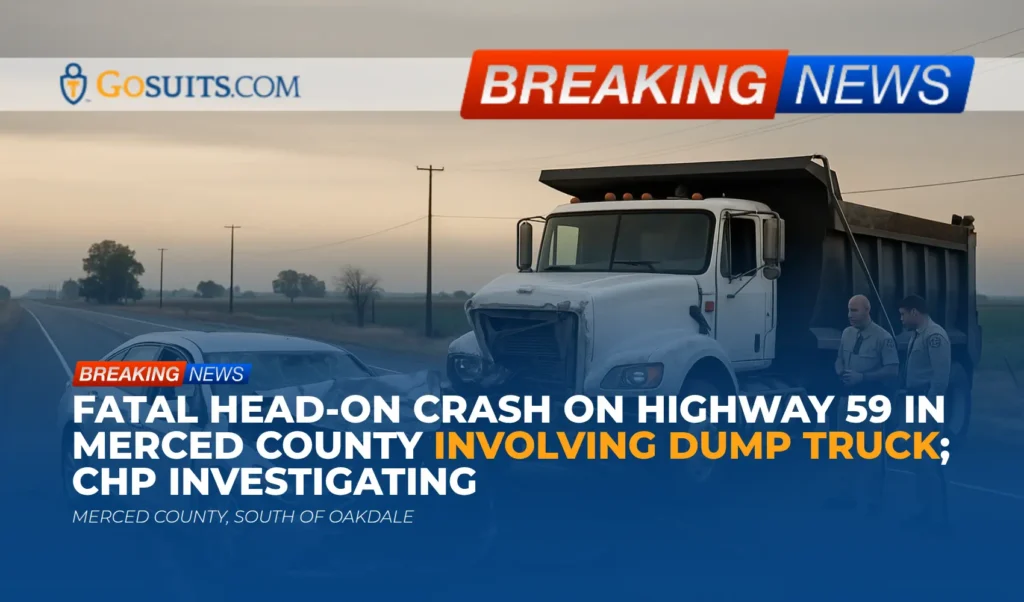A five-vehicle collision occurred in a San Angelo, Texas, shopping center parking lot on Wednesday afternoon, leaving one driver injured and raising questions about the legal implications of medical emergencies behind the wheel. The incident, which took place at the Lake View Towne Center on 29th Street around 3:30 p.m., highlights the potential complexities of determining fault in car accidents, particularly when a driver’s health may have been a contributing factor.
Incident Details
According to the San Angelo Police Department, the chain of events began when a white Chevy Suburban, traveling westbound on 29th Street, struck a silver Nissan Sentra. The Suburban then continued into the parking lot of the shopping center, where it collided with a blue Chevy Colorado. The force of this impact caused the Colorado to be pushed into a silver Dodge Challenger, which in turn struck a dark grey Challenger.
The driver of the Chevy Suburban was transported to Shannon Medical Center for treatment of injuries, the extent of which remains unknown. Fortunately, no other individuals involved in the crash sustained injuries.
Investigation and Potential Causes
While the investigation is ongoing, authorities believe that the driver of the Suburban may have suffered a medical condition that contributed to the accident. This raises a critical question: If a medical emergency caused the driver to lose control of their vehicle, does this absolve them of liability for the resulting damages?
In many jurisdictions, a sudden and unexpected medical emergency can be considered a valid defense against negligence in a car accident case. However, the success of this defense often hinges on several factors, including the foreseeability of the medical event and the driver’s actions leading up to the crash.
Legal Considerations in Medical Emergency Car Accidents
To successfully argue a medical emergency defense, the driver typically needs to demonstrate that the medical event was sudden and unforeseen. If the driver had a pre-existing medical condition that they knew could potentially cause a sudden loss of control, they may be considered negligent for continuing to drive. For example, if a driver with a history of seizures fails to take their medication and subsequently has a seizure while driving, they may be held liable for any resulting accidents.
Additionally, the driver’s actions immediately prior to the medical event may be scrutinized. If the driver felt symptoms that should have warned them of an impending medical issue, such as dizziness or chest pain, but continued to drive, this could be seen as negligence.

Establishing Negligence and Liability
Even in cases involving a medical emergency, it is essential to conduct a thorough investigation to determine all contributing factors to the accident. While a medical condition may have been the immediate cause, other factors, such as driver fatigue, medication side effects, or even previously existing mechanical issues with the vehicle, could have played a role.
Establishing negligence in a car accident case typically requires demonstrating the following elements:
- Duty of Care: The driver had a legal duty to operate their vehicle safely and avoid causing harm to others.
- Breach of Duty: The driver breached this duty of care by acting negligently or failing to act reasonably under the circumstances.
- Causation: The driver’s negligence directly caused the accident and the resulting damages.
- Damages: The injured party suffered actual damages, such as medical expenses, lost wages, or property damage.
In cases where a medical emergency is alleged, demonstrating a breach of duty can be more complex. The injured parties may need to present evidence to refute the driver’s claim of a sudden and unforeseen medical event, or to show that the driver’s actions prior to the event contributed to the accident.
The Importance of Gathering Evidence
In any car accident case, gathering evidence is crucial. This evidence may include:
- Police reports
- Witness statements
- Medical records
- Vehicle damage assessments
- Photographs and videos of the accident scene
- Expert testimony from accident reconstructionists or medical professionals
In cases involving a medical emergency, medical records can be particularly important. These records can help to establish the driver’s medical history, any pre-existing conditions, and whether the driver was under appropriate medical care.

Commentary from Gosuits San Angelo, Texas Personal Injury Attorney
The five-vehicle crash in San Angelo serves as a reminder of the unpredictable nature of car accidents and the complexities that can arise when medical emergencies are involved. While our hearts go out to everyone impacted by this event, especially the driver who was transported for medical care, it is essential to understand the potential legal ramifications of such an incident.
From a personal injury law perspective, determining liability in this type of situation requires a thorough investigation. While a sudden medical emergency may be a valid defense against negligence, it is not always a straightforward determination. The foreseeability of the medical event and the driver’s actions leading up to the crash are critical considerations.
If you or a loved one has been involved in a car accident where a medical emergency is suspected to be a factor, it is important to seek legal counsel from a seasoned personal injury attorney. An attorney can help you understand your rights, gather the necessary evidence, and navigate the legal process to pursue a just outcome. It is worth consulting with an attorney to understand all potential avenues for recovery and ensure the protection of your legal rights.






